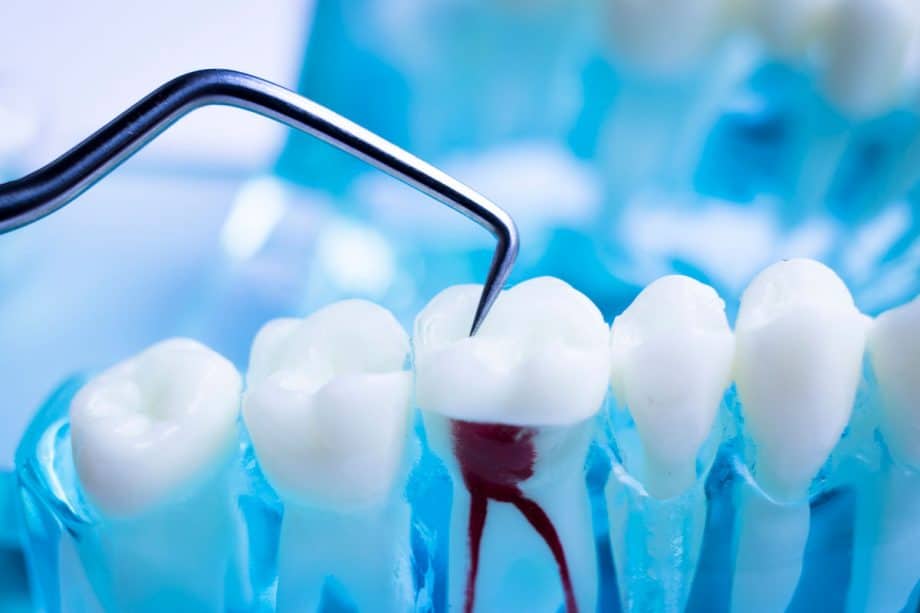Root canals have a reputation for being painful, but most patients are surprised to learn that the treatment is no more uncomfortable than getting a cavity filled. With local anesthesia and modern endodontic techniques, there’s no need to be anxious about getting a root canal. If you have an infected or damaged tooth that requires root canal treatment, here’s what you can expect.
Why Do I Need a Root Canal?
The most common reason patients need root canals is because the infection from a cavity has spread from the enamel of a tooth to the pulp. When the pulp is infected, it can result in severe, throbbing pain, sensitivity, and abscesses. Teeth that have deep cracks, that have broken, or that have compromised restorations (crowns or fillings) may also require root canals.
No matter the cause of a root canal, the reason we perform the procedure is the same: to save your natural tooth. If we were to extract the tooth instead, it may cause your other teeth to shift into the open space, compromising your bite; you’ll need a bridge or dental implant to replace it and if you wait to do so, you may need bone grafts in the jaw because missing teeth can cause bone resorption. A root canal is much simpler and also better for your dental health.
What Should I Expect During a Root Canal?
First, we use local anesthetic injections to numb your tooth and the tissue surrounding it. This ensures that you don’t feel any pain while we work.
During a root canal, we open up the affected tooth and remove the pulp at the center. We then clean the chamber of the tooth thoroughly and disinfect it to prevent reinfection from occurring. A filling called gutta-percha is placed in the chamber to replace the pulp and seal the tooth. Finally, a crown or filling is used to protect the tooth from damage and decay.
Because only local anesthesia is needed for a root canal, you can drive yourself home after the procedure. Many patients choose to take the rest of the day off of work or school, but you can return to your normal daily activities after your appointment if you prefer—just expect to feel numbness for a few hours, followed by some discomfort and sensitivity.
How Long Does It Take to Recover From a Root Canal?
Recovery from a root canal treatment is usually fast, although this depends on the complexity of your procedure. You may have some tenderness and sensitivity for a week or two after your root canal, but this is typically mild and can be treated with over-the-counter pain relievers and cold compresses.
While you can eat after your root canal, it’s a good idea to avoid hard foods and stick with a soft diet until your tooth is less sensitive. Start with soups, yogurt, and smoothies, then move onto soft foods like pasta and bread before going back to eating nuts, chips, and other foods that are hard, chewy, or crunchy.
Learn More About Root Canals
If you suspect that you need a root canal and would like to learn more about the procedure, contact us at 310-530-9893 to schedule an appointment for a consultation.


